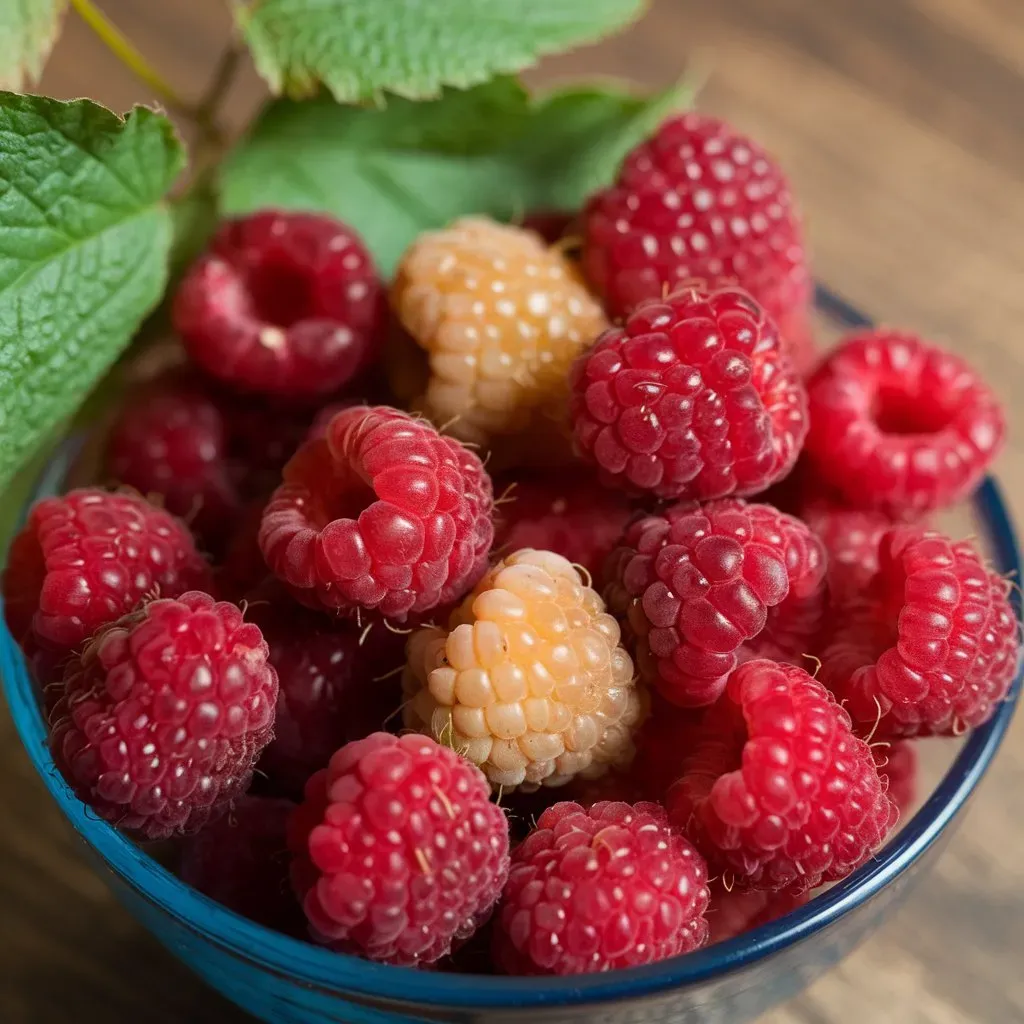Raspberries are a delightful fruit cherished not only for their vibrant color and sweet-tart flavor but also for their impressive nutritional profile. Originating from Europe and Northern Asia, these luscious berries have become a staple in diets around the world.
In this article, we will explore the fascinating aspects of raspberries, from their health benefits to their culinary versatility. Let's dive into the world of this remarkable fruit and discover why it's a favorite among many.
The Nutritional Profile of Raspberries
Raspberries are often lauded as a nutritional powerhouse due to their rich content of vitamins, minerals, and antioxidants. Here are some key nutrients found in raspberries:
- Vitamins and Minerals: Raspberries are an excellent source of vitamin C, which is crucial for a healthy immune system and skin health. They also contain vitamins A, E, and K, as well as essential minerals like potassium, magnesium, and calcium.
- Fiber Content: With approximately 8 grams of dietary fiber per cup, raspberries are an excellent choice for promoting digestive health. Their high fiber content aids in maintaining a healthy weight and regulating blood sugar levels.
- Antioxidants: Raspberries are packed with antioxidants, including quercetin and ellagic acid, which help combat oxidative stress and reduce inflammation. These antioxidants play a vital role in preventing chronic diseases such as cancer and heart disease.
Health Benefits of Raspberries
The impressive nutrient composition of raspberries translates into numerous health benefits. Let's explore how incorporating these berries into your diet can enhance your well-being:
1. Boosting Heart Health
Raspberries contribute to heart health by reducing cholesterol levels and improving blood pressure. Their high fiber content aids in lowering LDL cholesterol, while antioxidants help in reducing inflammation and maintaining healthy blood vessels.
2. Supporting Weight Management
The low-calorie and high-fiber nature of raspberries make them an ideal snack for those looking to manage their weight. The fiber content promotes a feeling of fullness, reducing overall calorie intake.
3. Enhancing Brain Function
The antioxidants present in raspberries have been linked to improved cognitive function and memory. Regular consumption of raspberries may help protect the brain against age-related decline.
4. Strengthening the Immune System
Rich in vitamin C and other essential nutrients, raspberries bolster the immune system, helping the body fend off infections and illnesses.
Culinary Uses of Raspberries
Raspberries are incredibly versatile and can be used in a variety of culinary applications. Here are some delicious ways to incorporate raspberries into your meals:
Breakfast Delights
Start your day with a burst of flavor by adding fresh raspberries to your morning cereal, yogurt, or smoothie. Their natural sweetness complements a variety of breakfast options.
Baking and Desserts
Raspberries are a popular choice for baking, adding a delightful tang to cakes, muffins, and pies. They pair well with chocolate and vanilla flavors, making them a favorite in dessert recipes.
Salads and Savory Dishes
Add a pop of color and flavor to your salads by tossing in some fresh raspberries. Their sweet-tart taste provides a perfect contrast to savory ingredients like goat cheese and walnuts.
Growing Your Own Raspberries
For those interested in cultivating their own raspberries, it’s a rewarding endeavor. Here are some tips to help you get started:
- Choosing the Right Variety: There are several raspberry varieties, including red, black, and golden. Select a variety suited to your climate and taste preference.
- Planting and Care: Raspberries thrive in well-drained soil with plenty of sunlight. Regular pruning and watering are essential for healthy growth and abundant fruit production.
- Harvesting: Raspberries are typically ready for harvest in the summer months. Gently picking the ripe berries ensures they are at their peak flavor.
Frequently Asked Questions (FAQs)
Q1 : Are raspberries keto-friendly?
Yes, raspberries are low in carbohydrates and high in fiber, making them a suitable option for a ketogenic diet.
Q2 : Can I freeze raspberries?
Absolutely! Freezing raspberries is a great way to preserve their freshness. Simply wash, dry, and store them in airtight containers.
Q3: How do raspberries compare to other berries nutritionally?
Raspberries are similar to other berries in terms of antioxidant content but have higher fiber levels than many other varieties, making them unique in promoting digestive health.
Q4 : Are there any known allergies associated with raspberries?
While rare, some individuals may experience allergic reactions to raspberries. It's essential to consult with a healthcare provider if you suspect an allergy.
Q5: Can raspberries aid in skin health?
Yes, the antioxidants and vitamin C in raspberries contribute to healthy skin by reducing inflammation and promoting collagen production.
Conclusion
Raspberries are more than just a delicious fruit; they are a nutritional powerhouse with numerous health benefits. Whether you're looking to boost your heart health, manage your weight, or simply enjoy a flavorful snack, raspberries are an excellent choice. Their versatility in culinary applications makes them a favorite among chefs and home cooks alike. So, the next time you're at the grocery store, be sure to pick up a pint of these vibrant berries and enjoy all they have to offer.


